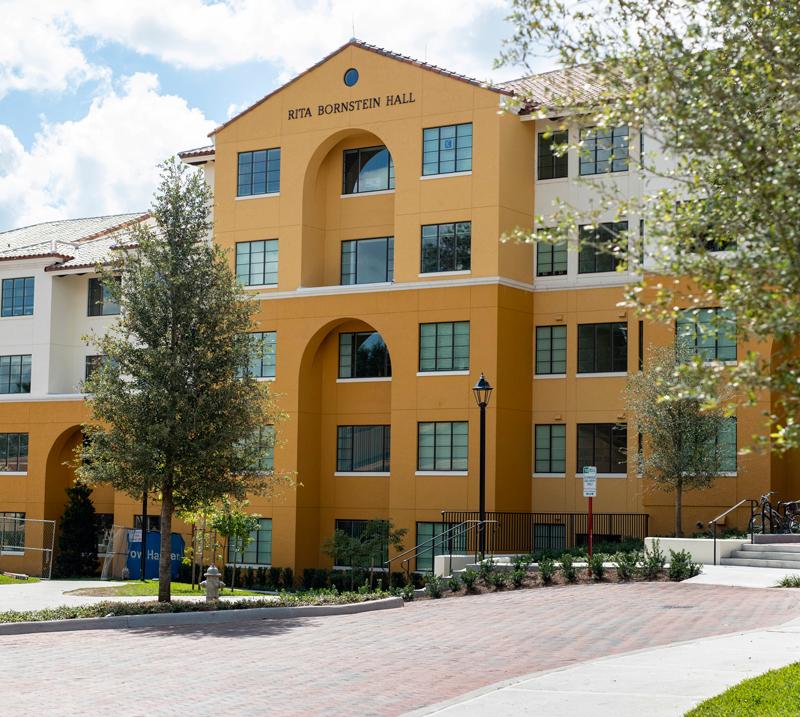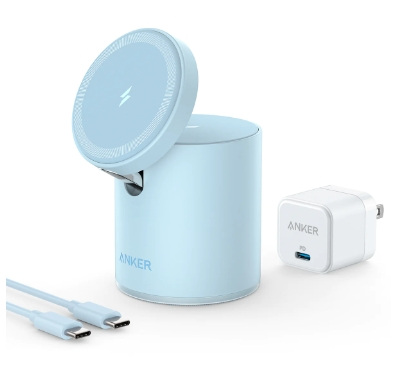
By cuterose
Over A Dozen Frostburg Students Vacate The Dorms Because Of FSU’s Handling Of COVID-19, Others Are “Stuck” Or Worried About Their Grades
Following TBL’s reporting of a residential student named Jasmine who tested positive for COVID-19 and was not relocated to quarantine housing, despite FSU knowing of her condition, over a dozen students have reached out to say they’re leaving campus for the remainder of the semester. Some say they no longer trust FSU and that the institution’s lack of transparency prompted their decision. Others say they might not return to FSU in the spring. Some students say they feel “stuck” at FSU either because they are concerned that their professors will not be accommodating should they move home, or because conditions with their families aren’t conducive to their studies. Two parents have also responded to say that FSU “is not doing their job.”
Reactions From Those In Jasmine’s Dormitory
Two of the students who resided on the same floor as Jasmine say that residents never got an official announcement from FSU or Residence Life about their Resident Assistant testing positive. “I learned about it by reading the article,” said Nargina, a junior, “we were never informed by the school.” Nargina said, “What’s crazier is that she was still in the dorms even after the article published! A friend down the hall texted me saying, ‘yeah, Jasmine’s still here,’ and I was like ‘what?! What do you mean? She has COVID!'” Indeed, Jasmine continued to reside in her dorm for several hours after news of her positive status broke, and was finally taken to the Quality Inn around 4:00 p.m. on Friday, Oct. 31, well over 24 hours after FSU became aware that she had COVID-19.
Nargina said that she “loves this school” and “is proud to go to Frostburg,” but that this semester has given her pause. “It is very rare for me to get frustrated, but I can’t believe they aren’t doing anything about this,” she said, “I want to believe that the school cares about us, but it feels more like they just care about us being on campus for the money. I can’t believe they withheld this important information from us… they don’t know who lives with elderly parents or might has asthma.” Nargina said she’s conflicted about what to do given the circumstances, “I am considering leaving until in-person classes resume because I don’t feel safe here. I feel like FSU doesn’t have our best interest at heart. I’m still trying to figure it out.” Nargina reports that, for the sake of her studies, she’d prefer to stay on campus. “When we switched online in March and went home, I slept through some lectures,” she said, “and I feel like I’ll do better in school if I stay. This is a really difficult decision.”
Ismerai, another of Jasmine’s residents in the dormitory who appeared in the initial reporting, said that she got her COVID-19 test results back and they were negative. She reports that the resident who briefly interacted with Jasmine to borrow a broom also tested negative but, “they’re going back home and self-quarantining because they no longer feel safe after this scare.” Ismerai is planning to return home, as well. “This one really hit close to home, mainly because my family came up here and they were put at risk,” she said, “I don’t trust us having another case and being informed, FSU clearly won’t tell us and that terrifies me.” Ismerai said she predicts a “huge mass of students leaving because we’re scared.”
Ismerai’s mother, Daly, told TBL, “they need to close the university and send everyone home.” Daly was initially “80% optimistic” about the semester, calling FSU’s re-opening strategy a “good plan because they would conduct surveillance testing, monitoring student symptoms, and had a whole wing of the hotel reserved.” However, following the news that her daughter’s RA had tested positive and spent nearly a week in the dorms, Daly says she’s angry. “The university should have acted fast, shut down the building, and notified students,” said Daly. After reading the news of Jasmine’s experience, “I got very anxious and scared about my daughter’s well-being. I still am,” she said.
Daly said that FSU is a “hotspot,” in her opinion. “They hid this information from students. The right thing to do would be to contact the hall residents and get them tested. That’s what should have been done based on CDC guidelines and Frostburg isn’t doing that,” she said. “Please close the school and move to online before this becomes worse,” Daly pleads.
Other Resident Assistants Speak Out

One of the reasons that Jasmine’s experience was harrowing was because, as a Resident Assistant, she is in charge of 18 occupants of her dormitory. RA’s, as they are better known, provide support to students living on-campus, plan programming, and are responsible for enforcing university rules. In exchange for their work, they receive free room and board, but are not otherwise monetarily compensated.
Alexiss, a Resident Assistant in Annapolis Hall, said, “all the RA’s are so oblivious to how many of our residents got COVID and if we have it. They tell us nothing.” She says that three of her residents have gone home because of COVID-19, two of them because “they were afraid to be in the dorms” and the other because the student tested positive. Alexiss said she’s heard rumors that members of the FSU swimming team, many of which live in her building, have tested positive. “As far as I know it’s about 10-15 of them, and that’s just from my building.” Frostburg State University has never released information regarding any positive cases on the swim team. Alexiss says that the Office of Residence Life has not put out any new statements following Friday’s reporting, “all I keep hearing is ‘just wear your mask and stay safe,’ but how can we stay safe when we have residents constantly going to parties and athletes going to practice and getting COVID?”
All of this has Alexiss thinking about next semester. “I’m not sure on coming back,” she said, “I might just do all online. My Mom thinks it’s best for me to stay home right now because I’m kind of high risk.” Both her parents have encouraged her to stay in her dorm room more often and isolate from others. “My Mom said when I come home we can try and figure out next semester together and see how it’ll work out,” said Alexiss.
Bri, a Resident Assistant in Gray Hall, wrote to TBL that she’s considering telling her Hall Director that “my mother doesn’t want me up here and neither do I” because she “doesn’t feel safe here” and that she’s considering moving home after she gets tested locally. Bri says that even after the campus learned that in-person classes would be halted through Nov. 4, she’s had to “tell 10+ guys to leave my dorm because they wanted to have a party in the basement without masks.”
Some Say They Feel “Stuck”
Sidonie, a student set to graduate this December, says her studies will suffer if she has to go home. “It’s just too busy at my house, my laptop is unreliable, and so is my WiFi,” she wrote by text, “I fear some professors won’t make accommodations.” Sidonie says that while instructors were told by the Office for Academic Affairs to prepare to move online at any point in the semester, many of her professors aren’t ready. “They’re all like, ‘here’s what we’re gonna do in MY class,'” she wrote.
Carlee, a student leader and political science major, said that while she could return to her hometown of Baltimore, that she has an “off-campus lease in town” and is “stuck here” because her landlord won’t refund her rental fees even if she vacated due to a COVID-19 spike. Indeed, after classes moved online in Spring 2020, local landlords refused to reimburse students for rent paid up-front. One student, a business major who lives off-campus, said he was moving out either way, “my parents think I’ll be safer at home and it’s so close to the end anyway.”
Carlee doesn’t necessarily mind staying in her apartment, “but I still don’t feel safe on campus and I have three full in-person classes.” Carlee says she is high risk for the coronavirus, “and if I got it I would have to go home to have access to my doctors, but I can’t do that and put my grandmother with dementia at risk.” Carlee says she’s already discussed the possibility of moving entirely online with one of her professors, but she says he denied her request, “and that’s been the general consensus for 99% of the political science department,” she says.
Student Pleads, “Frostburg, Please Do Better.”
Though some on social media and elsewhere expressed shock at the way FSU handled Jasmine’s case, others were less so. “I’m not surprised by Brady Health and I’m not surprised at how the school handled it,” said Jasmine Akarolo, a Health Science major and SGA Senator, “Frostburg State continuously does the bare minimum for their students and it’s despicable. With Jasmine’s story, it is only confirmation of how Frostburg actually feels about their students.”
Akarolo, not to be confused with the Jasmine in the original reporting, says that the lack of robust testing at the institution is the culprit here. “The way they have conducted testing is inconsistent and unfair,” she said, “everyone that is not an athlete or selected to be in the surveillance testing has been only tested two times, with no promises of another one coming soon.” Indeed, per NCAA guidelines, 25-50% of the athletics department is to be tested on a weekly basis, with some athletes having been tested six or more times this semester. Most students have been tested much less frequently.
The stress of the semester and the virus, says Akarolo, has taken a toll on students. “FSU claims to know what we go through and appreciate our challenges, but they are not supporting us,” she said. “As a leader, you are supposed to do what is right by people, and Frostburg obviously does not know how to execute. They have added stress on top of everything else we are going through and it really hurts,” said Akarolo, “Frostburg, please do better.”
Flexibility From Professors & PC/NC Grading
Seven students who asked to remain anonymous said that the deciding factor for them about whether to return home sooner rather than later hinged on whether their professors would be flexible with them. One wrote, “I’d have already left if I knew my teachers would be easy on deadlines.” Another said, “this is why PC/NC grading would help, because then I’d know it wouldn’t be so hard to pass given everything.”
Indeed, Pass Credit/No Credit grading has been a hot topic among students recently on social media. In response to student demand, SGA President Noah DeMichele sent a four page proposal to Interim Provost Dr. Michael Mathias earlier in October with the hopes that FSU would offer students this option as they had in the Spring 2020 semester. A petition seeking PC/NC grading also circulated and has over 750 signatures from students. Despite their efforts, the Office for Academic Affairs turned SGA down, saying that students and faculty should have been “prepared” for the Fall 2020 semester.
In the week after the decision was made, FSU announced that they would pause in-person classes through Nov. 4 because of a significant increase in COVID-19 cases on campus. DeMichele wrote by email, “the switch to online learning through at least November 4 is the same abrupt shift students experienced last semester, causing students more stress in a semester that has not been normal by any means.” He says that SGA has reached back out to University leadership about instituting PC/NC grading, “and we hope to be able to work with them to find a solution to help students succeed this semester.” Liz Medcalf, Director of Communications for FSU, responded to TBL’s request for more information about PC/NC in light of the shift to online instruction. “I was unable to reach Dr. Mathias to be able to answer the Academic Affairs question,” she wrote.
Frostburg State University is the only University System of Maryland campus that has had to pause in-person instruction due to COVID-19 outbreaks. Moreover, FSU’s decision comes as local cases surge and Maryland Governor Larry Hogan reports that Allegany County is considered a “red zone.”
University Response To Student Concerns
In a joint statement regarding students who are considering leaving the university due to concerns about COVID-19, FSU President Ronald H. Nowaczyk and Vice President for Student Affairs Artie Travis wrote, “We understand the caution anyone has about choices made during the pandemic. It is a difficult time, and we appreciate any concerns that are raised.” Nowaczyk and Travis say students should reach out with comments or questions to the fall2020@frostburg.edu account that has fielded more than 200 issues this since it was established over the summer. The two reiterated that many of the current cases on campus are in “common social circles” and reported that the positivity rate on campus is 5.64%.
The full joint statement, fairly boiler plate in nature, can be found here. Nowaczyk and Travis admit that FSU “was aware there would be challenges” and that “efforts to mitigate risks and provide an unaltered, but substantive educational experience have not been perfect.”









